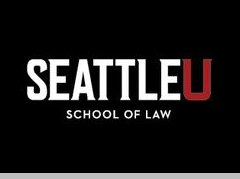Keywords
Fracking, Environment, Ad Coelum, Rule of Capture
Abstract
Imagine that during the course of hydraulically fracturing a tract of land—a process used to extract gas from low-permeability rock formations —a drilling company causes fractures, as well as some of the materials necessary to the fracturing process, to cross the boundary of its property line and enter an adjoining property—that is, it makes a subsurface intrusion onto a neighbor’s property. Assume further that, because the company’s fractures have extended into the neighbor’s property, oil and gas from the neighboring land travels to the company’s wellbore, causing the neighbor to bring a tort action against the company for harms related to the draining of its minerals. Should the court find that the company’s actions constitute an actionable subsurface trespass? Instead of focusing on this question, courts that have confronted the issue to date have all spent time focused on whether the rule of capture precludes liability rather than on whether a subsurface intrusion resulting from hydraulic fracturing constitutes subsurface trespass. In Texas, the trespass issue was neglected altogether, while in Pennsylvania, the finding of a trespass lacked analysis and seems to have been based on the long-rejected doctrine of ad coelum, which means that landowners own everything above and below their land, up to the sky and down to the core of the Earth. Given the extensive use of hydraulic fracturing across the country, the question of whether a subsurface trespass has occurred will likely appear repeatedly until the law is settled in this area. To present an answer to the issue, I first address the doctrine that has taken up most of the discussion: the rule of capture. Because the rule of capture dominates the discussion surrounding subsurface intrusions, it is necessary to explore the justifications for the rule of capture and argue for its in-applicability to the subsurface trespasses resulting from hydraulic fracturing. Having shown that the rule of capture does not apply, I then proceed to argue that subsurface trespasses resulting from hydraulic fracturing should only be actionable when the plaintiff can prove a harm and when the defendant’s actions are intentional. This solution considers policy arguments raised by courts in both the Texas and Pennsylvania cases, as well as the handling of subsurface trespasses in analogous situations.
Recommended Citation
Désiré, Alexis K.
(2022)
"Fracturing the Rule of Capture: The Improper Application of the Rule of Capture to Subsurface Intrusions Resulting from Hydraulic Fracturing,"
Seattle Journal of Technology, Environmental, & Innovation Law: Vol. 12:
Iss.
1, Article 7.
Available at:
https://digitalcommons.law.seattleu.edu/sjteil/vol12/iss1/7
Included in
Civil Law Commons, Energy and Utilities Law Commons, Environmental Law Commons, Land Use Law Commons, Mining Engineering Commons, Oil, Gas, and Mineral Law Commons, Property Law and Real Estate Commons

